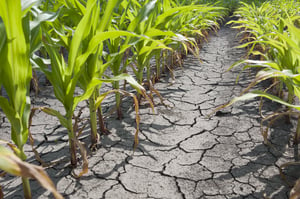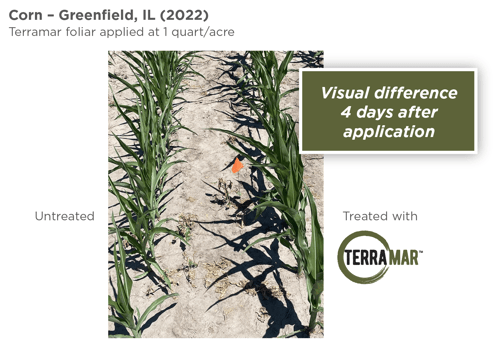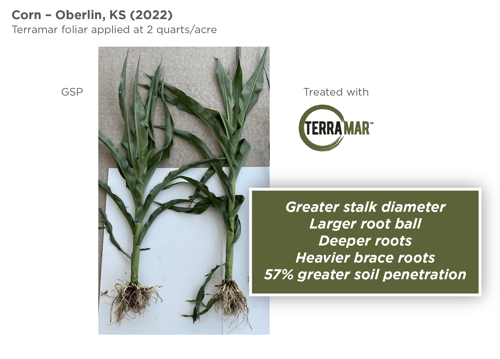 Drought stress can cause significant yield reductions in corn, so it's important for growers to proactively consider ways they can reduce the impact of dry conditions on their crops.
Drought stress can cause significant yield reductions in corn, so it's important for growers to proactively consider ways they can reduce the impact of dry conditions on their crops.
Although growers can't control the weather, they do have options that can help them improve plant health and strengthen their corn crop's stress tolerance in the face of drought.
What Options Do Corn Growers Have for Combating Drought Stress?
Approaches for combatting the effects of drought or dry conditions include:
- Strobilurin-containing fungicides.
Strobilurin-containing fungicides have known beneficial effects on corn development, even in the absence of disease. - Foliar nutritionals.
Foliar nutritionals can be added to fungicide applications for even stronger plant health effects. Nutrient absorption in the leaf tissue is highly efficient and can partially make up for shortfalls in root absorption when the soil is dry. In addition, applying relatively small amounts of foliar nutritionals can prompt plants to work harder at extracting nutrients from the soil and can increase drought tolerance. - Foliar- or soil-applied biostimulants, biologicals or plant hormone technologies.
Products in this category can stimulate the plant and/or soil microbes to improve crop tolerance to drought stress and allow energy to go into yield, rather than stress response.
One product in the last category is TERRAMAR, available from Nutrien Ag Solutions. TERRAMAR is designed to improve both nutrient uptake and plant response to weather-related stress, including drought or dry conditions. It can be applied in season to help corn stand up to drought and heat stress.
In a field trial from Illinois (photo below), TERRAMAR was foliar-applied on V5 corn experiencing heat and drought stress. Only four days later, the treated corn looked visibly healthier.
A field trial from Kansas (photo below) also shows a visual improvement with foliar-applied TERRAMAR on 12-leaf corn that was experiencing both drought and heat stress. The benefits can be seen both above and below the soil, with a healthier looking plant that has a greater stalk diameter, larger root ball, deeper roots, and heavier brace roots.
What's more, the TERRAMAR-treated plants had 57% greater soil penetration, pulling at the 55-cm level on the water probe measurement, compared to the untreated plants that were not yet pulling at even the 45-cm level when measurements were taken.
With many areas of the nation experiencing hot, dry weather, it's the right time to consider these tools as a way to potentially reduce the total impact of drought conditions.
Learn more about the benefits of the marine-based technology found in TERRAMAR by downloading the corn and soybean bulletin.








